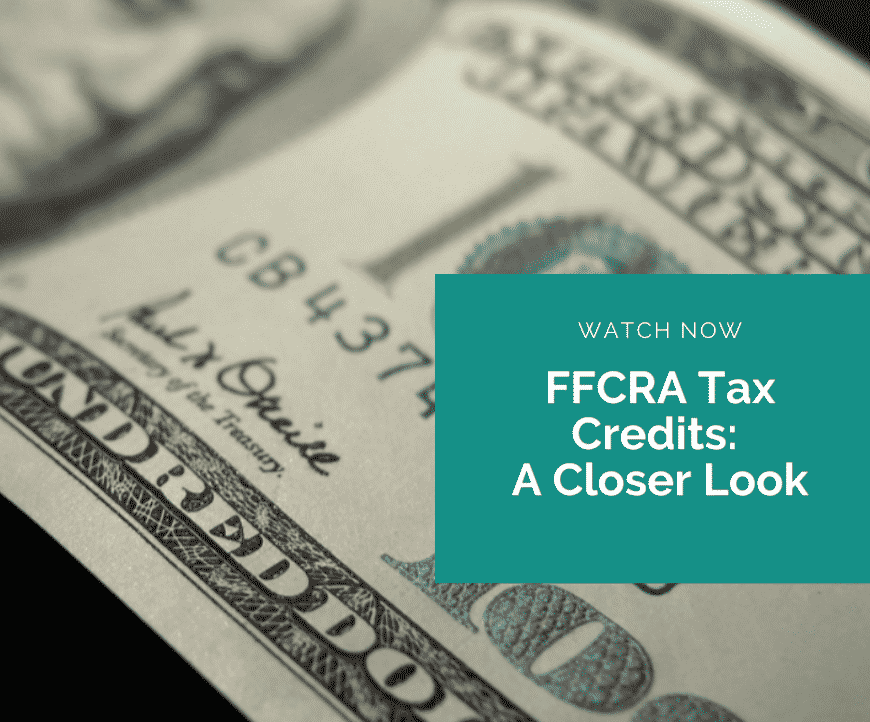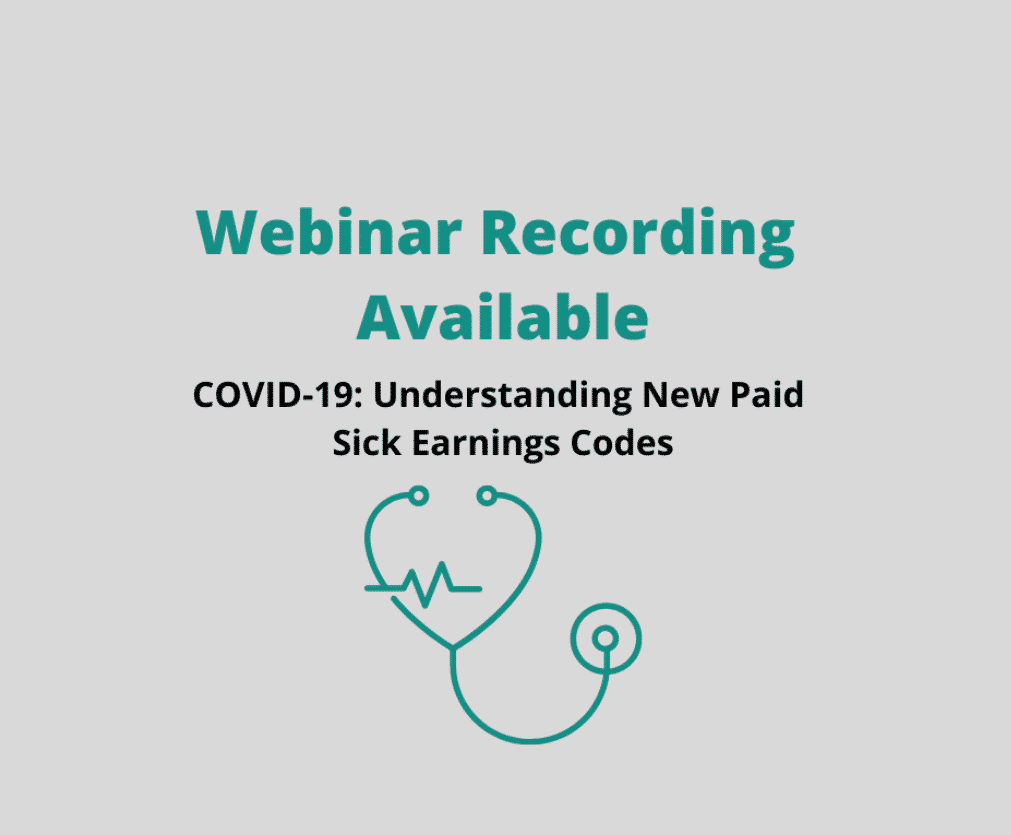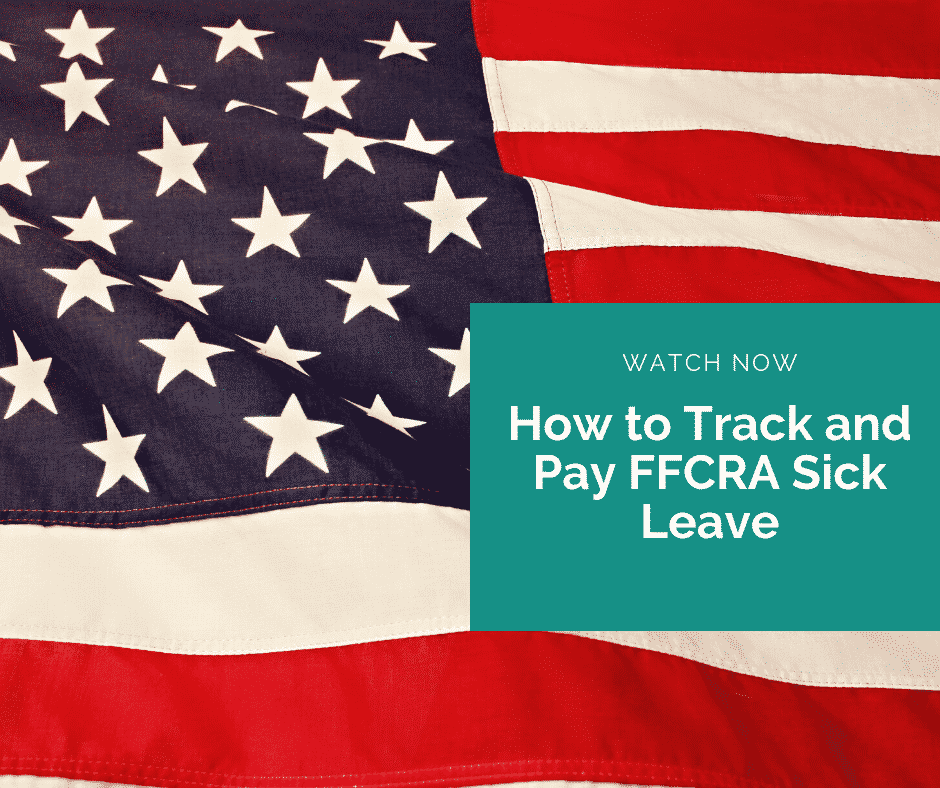FFCRA Tax Credits: A Closer Look
During this video, we will take a closer look at the FFCRA Paid Leave Tax Credits.
As you are probably aware by now, the FFCRA, or Families First Coronavirus Response Act, requires employers to provide paid leave through two separate provisions: (1) the Emergency Paid Sick Leave Act and (2) the Emergency Family and Medical Leave Expansion Act. These provisions require certain employers to pay employees for time that they are unable to work due to very specific reasons related to COVID-19. When employers pay employees following the legal requirements of the Act, the FFCRA provides that employers are entitled to fully refundable tax credits to cover the cost of the FFCRA leave pay. We will discuss these tax credits and how they impact your payroll.
This video will answer the following questions: What wages are eligible for the Paid Leave tax credits? How are the tax credits calculated and how will I see these on my payroll reports? When should I expect to receive the funds from the credits? What happens if the tax credits on my payroll are greater than my tax liability? And…What records should my business retain for these tax credits?







Reply a Comment